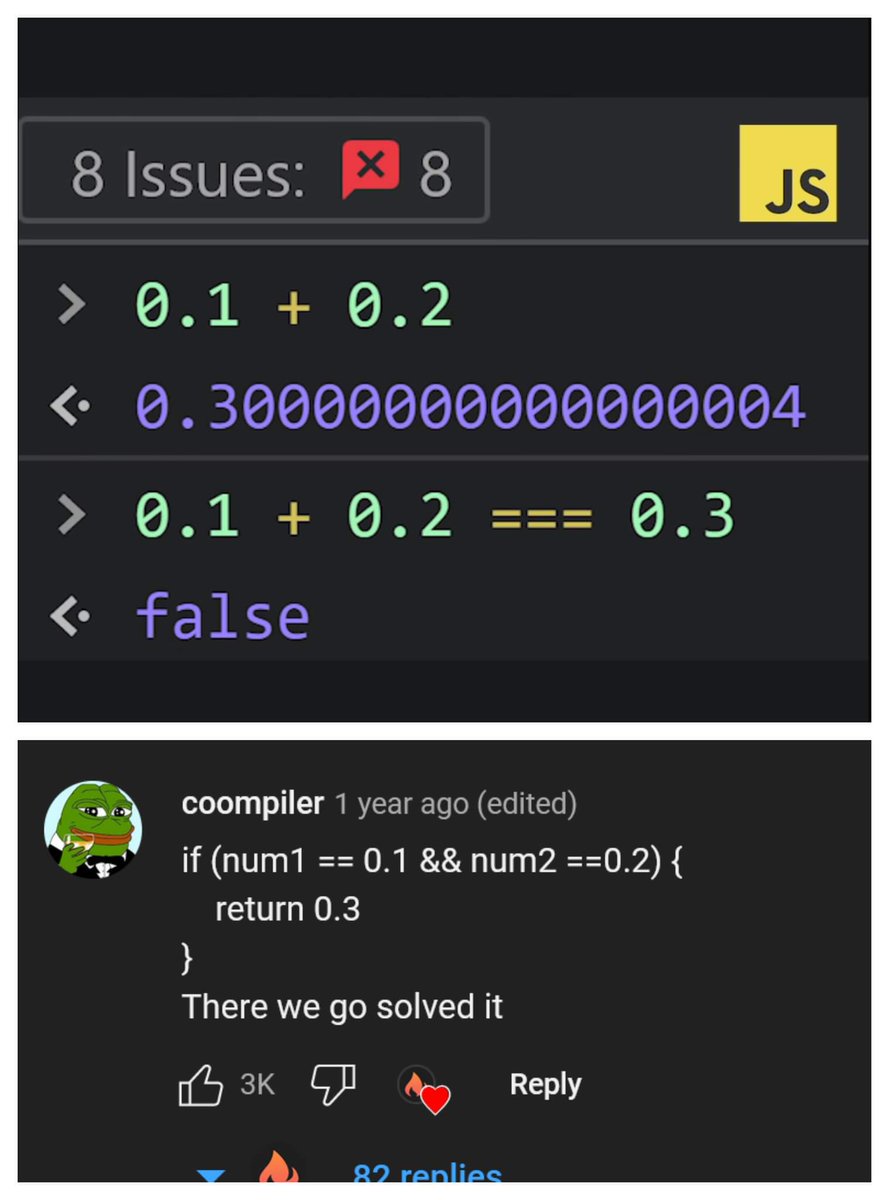this post was submitted on 25 Jun 2023
262 points (98.2% liked)
Programmer Humor
23194 readers
844 users here now
Welcome to Programmer Humor!
This is a place where you can post jokes, memes, humor, etc. related to programming!
For sharing awful code theres also Programming Horror.
Rules
- Keep content in english
- No advertisements
- Posts must be related to programming or programmer topics
founded 2 years ago
MODERATORS
you are viewing a single comment's thread
view the rest of the comments
view the rest of the comments

The lesson here is that floating point numbers are not exact and that you should never do a straight comparison with them. Instead check to see if they are within some small tolerance of each other. In python that is done with
math.isclose(0.1 + 0.2, 0.3).Please don't try to approximate. Use the decimal module to represent numbers and everything will work as expected and it has a ton of other features you didn't know you needed.
https://docs.python.org/3/library/decimal.html#module-decimal
Decimal does come at a cost though, being slower than raw floats. When you don't need precision but do need performance then it is still valid to use floats. And quite often you don't need absolute precision for things.
Be careful however, if you work with really large numbers this will absolutely tank your performance and eat up all your memory.
There's a reason floating point numbers exist. They are very good at what they do, at the cost of lower precision and being a bit more difficult to work with.